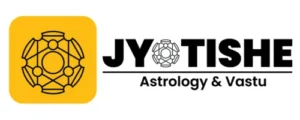Expert Mobile Application Development for Seamless User Experiences
We specialize in creating innovative and user-friendly mobile applications tailored to your business needs. Our team leverages the latest technologies to develop seamless, high-performance apps for iOS and Android. From ideation to launch, we ensure an intuitive user experience and robust functionality. Whether it's a startup or an established enterprise, our solutions drive engagement and growth.Whatsapp Now Call Now
Our Services
-
React Native App Development
Native app development involves creating applications tailored specifically for a particular mobile platform, such as iOS or Android. These apps provide optimal performance and a seamless user experience, utilizing the full potential of the device’s features. Native apps are ideal for businesses seeking high-quality, responsive apps with fast load times and superior functionality.
-
Hybrid App Development
Hybrid app development combines elements of both native and web apps, allowing the app to run on multiple platforms with a single codebase. This service is cost-effective and efficient, as it reduces development time while ensuring a smooth user experience across devices. Hybrid apps are ideal for businesses looking to reach a broader audience without the need for separate apps for each platform.
-
App UI/UX Design
App UI/UX design focuses on creating an intuitive, visually appealing interface and an enjoyable user experience. This service ensures that the app’s design is both functional and aesthetically pleasing, enhancing user engagement and satisfaction. The goal is to create an interface that is easy to navigate and supports the app’s purpose effectively.
-
App Maintenance & Support
App maintenance and support ensure that an app continues to perform well after launch by addressing bugs, updates, and system improvements. This service helps businesses keep their app compatible with the latest operating systems and devices. Regular maintenance is essential for improving app performance, fixing issues, and incorporating user feedback to enhance functionality.
-
App Integration Services
App integration services involve linking the app with other software, databases, and APIs to enhance its functionality. This can include integrating payment gateways, social media platforms, or cloud storage solutions. Seamless integration ensures that the app offers a more comprehensive and connected experience for users, improving efficiency and usability.
-
Android Application Development
Android application development focuses on creating user-friendly, high-performance apps for Android devices. Developers utilize tools like Android Studio and Kotlin to design intuitive interfaces and seamless functionality. These apps are optimized for compatibility with various Android versions and devices. Businesses use Android apps to engage a vast audience and enhance their digital presence.
-
iOS Application Development
iOS application development involves crafting sleek, high-performance apps tailored for Apple devices like iPhones and iPads. Developers use Swift and Xcode to build apps with intuitive interfaces and seamless functionality. These apps are optimized for the latest iOS updates and Apple’s ecosystem standards. Businesses leverage iOS apps to engage premium users and deliver exceptional digital experiences.
-
Application Consulting
Application consulting helps businesses identify, design, and implement software solutions tailored to their specific needs. Consultants provide expert advice on selecting the right platforms, optimizing workflows, and ensuring seamless integration. This service enhances the functionality, scalability, and efficiency of applications. Businesses leverage application consulting to achieve better performance and ROI from their software investments.
Performance Marketing Packages
Choose the perfect package for your business
- Domain Name (1st Year Free)
- Web Hosting (1st Year Free)
- SSL Certificate 128 BIT
- Free Theme
- AI-Generated Content
- Dynamic Website
- Domain & Hosting (1st Year)
- Premium Theme Worth ₹5,000
- Professionally Written Content
- 3 Business Emails
- Mobile Optimized Design
- Dynamic Website
- Managed Hosting + SSL
- Premium Theme Worth ₹9,000
- Editorial Quality Content
- 7 Business Emails
- Elementor Pro + Antivirus
- Dynamic + Speed Optimized
Process of Mobile Application Development
The process of mobile application development begins with understanding the client’s goals, target audience, and business requirements. Our team conducts a thorough analysis to define the app’s functionality, features, and platform (iOS, Android, or cross-platform). After gathering all necessary information, we create wireframes and design prototypes to provide a clear visual representation of the app. Once the design is approved, our developers start coding and building the app, ensuring that it meets performance, security, and usability standards. We conduct thorough testing to detect and fix any bugs, ensuring a smooth user experience. After successful testing, we launch the app on the respective app stores. Post-launch, we provide ongoing maintenance and updates to ensure the app remains functional and relevant in a constantly evolving market.Requirement Gathering & Planning
The first step in mobile app development is understanding the client’s requirements, target audience, and project objectives. Detailed planning involves defining the app’s features, functionalities, and overall scope.Development & Integration
In this phase, developers start coding the app based on the finalized design and functionality. They integrate the backend with the frontend, ensuring smooth interactions and communication between app components. This phase also includes setting up necessary APIs, databases.UI/UX Design
UI/UX design is crucial for creating an intuitive and visually appealing user experience. The design team focuses on wireframing, creating mockups, and prototyping to ensure the app is easy to navigate and aligns with the client’s brand. This stage ensures that the design is both functional and user-friendly before development begins.Testing & Deployment
Once development is complete, the app undergoes rigorous testing to identify and fix bugs, ensure functionality, and optimize performance. After successful testing across multiple devices and environments.













Frequently Asked Questions
Get answers to common questions about our Android/iOS Development In Ahmedabad

